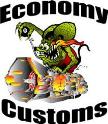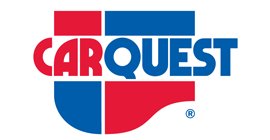Archive for June 2021Emergency! (Vehicle Emergency items)Posted June 27, 2021 9:45 AM"I never expected it could happen to me." Countless drivers have said that after they've had an emergency turn their lives upside down. So before that happens to you, let's thinking about planning ahead for an emergency with a few things you should keep in your vehicle.
Other things like basic tools, a first aid kit, a space blanket and jumper cables are also good ideas. Many service repair facilities offer these items for sale, and you can ask your service advisor for suggestions. While it's fresh in your mind, plan a shopping trip and put together your own emergency kit now. Sure, you can put it off, but you may find yourself stuck in a difficult situation, saying to yourself, "Only if…" Economy Transmission and Auto Repair Singing a Different Tune (Up) (Tune Ups)Posted June 20, 2021 7:40 AMEngines required a lot more maintenance in earlier times. You'd have to have your spark plugs, wires, rotors, caps, distributor points, fuel and air filters changed periodically. There were mechanical adjustments of a vehicle's timing, dwell, spark gap and idle mixture, too. Unless you like to tinker with old cars, a lot of those terms won't mean much to you. That service was called a "tune up" back then, and you can see why. But now, computers have reduced the number of maintenance items, and a tune up is a whole lot different than it used to be. In fact, in some vehicle service facilities, that term is also a thing of the past. A tune up of today would more accurately be called simply periodic maintenance. Now, most vehicles still have spark plugs and wires, fuel filters, air filters and PCV valves, and they should be inspected tested and/or replaced at regular intervals. Your vehicle's manufacturer has made recommendations on how often that should be. But it depends on your driving habits. Do you regularly tow a trailer? Do you drive on dusty roads often? Are you driving mostly stop and go in the city? Depending on your answers, to those maintenance intervals might have to be more frequent. Your service advisor will likely remind you about those "must check" items such as spark plugs and wires, air filter and oxygen sensor. And now that the old-fashioned tune ups don't require you to take your vehicle in for maintenance as often, you can get the same benefit from scheduled oil changes or tire rotations. When your vehicle is in for those, a technician can keep an eye on your other systems (fuel, emissions, ignition) to make sure they are operating correctly. One thing to remember. When you take your vehicle in for regular service or a specific issue, don't ever hesitate to ask you service advisor to explain what's being done and why. Hey, "In Sync" may have been a boy band of an earlier era, but it's always good for you and your service advisor to be "in sync" when it comes to what maintenance is good for your vehicle. Economy Transmission and Auto Repair Some New Boots (Suspension Maintenance)Posted June 13, 2021 7:36 AMThere are some boots that don't come in a shoe box and aren't worn on your feet. They are called axle or CV boots, and they can be important parts for many vehicles. That CV stands for constant velocity. CV axles are mainly used in front-wheel drive and all-wheel drive vehicles. They're also used in some rear-wheel drive vehicles with independent suspensions. They have two CV joints, one inner and one outer, placed between the axle and the drive wheels. That way the vehicle's engine power can drive the wheels, no matter what angle they are. They also adjust for the different speeds wheels turn as they go around corners. Because roads are full of all sorts of hazards (dirt, oil, water, grime), these CV joints need to be protected. They also have grease in them to keep the bearings moving smoothly. That's the job of the rubber boots that are supposed to keep that debris out. These CV or axle boots are made of rubber or plastic and usually last a long time without any problem. But sometimes they fail, either from being hit by debris or age causing the rubber or plastic to deteriorate. That can allow the grease to leak out of the joint and the moisture to get in. And that's where the trouble is. So it's important to have a vehicle's CV boots checked periodically, especially when they begin to have more than 100,000 miles/160,000 kilometers on them. A technician inspects them for tears or cracks. Sometimes if the problems are found early enough, the boots can be replaced and the joints can be re-packed with grease. But sometimes the CV joint can wear out even though the boot is intact. When the CV joint fails, you might hear a grinding, humming or clicking noise and feel vibration. Some of these can be difficult to access for service, so many service advisors will recommend replacing the joints and boots at the same time. Just remember, new CV boots won't make a fashion statement, but they will keep your vehicle going down the road for years to come. Economy Transmission and Auto Repair No Strain, No Gain (The Basics of Oil Filters)Posted June 6, 2021 11:56 AMEver wonder what one of the best things is to ever happen to your vehicle's engine? It's the little thing that usually looks like a can, the oil filter. Just like your kitchen sink strainer filters out errant particles of food from clogging your drain, the oil filter cleans out small particles that could cause your engine harm. Your engine operates in a dirty, hot environment and gathers a lot of tiny contaminants like dirt, dust, little metal shards and unlucky bugs that get sucked in. Get those things circulating in your engine and those little particles can cause friction, which starts wearing out those finely machined metal parts. You know how important it is to change your oil regularly. It's vital that you change your oil filter at the same time to keep the oil as close to brand new as possible. Most oil filters look like a metal can with some holes in the bottom. Inside there are carefully chosen materials that can screen out the contaminants while at the same time allow the lubricating oil to pass through. Early oil filters had steel wool, metal mesh or actual screens. Then they tried fabric filters using material such as linen and cotton. Finally, a less expensive disposable filter using paper and cellulose did the trick. Cellulose or other synthetic media are used in most oil filters today. Cellulose is inexpensive and effective. Fibers filter out particulates and let the oil flow. The other synthetic media have the ability to screen out even tinier particles while not significantly restricting the oil from getting through. Engineers continue to work on even more advanced filter material. Choosing the right oil filter is something our pros at Economy Transmission and Auto Repair can help you with because there are a lot of them out there. Factoring into that decision are your driving habits, how far you drive and the temperatures to which your engine will be subjected. While some filters will cost more than others, they may be worth it to extend the life of your engine. But most important is remembering to come have your oil changed at Economy Transmission and Auto Repair regularly at the intervals recommended by the vehicle's manufacturer. Just like you wouldn't want to have a plumber come over to fix a clogged kitchen drain, you certainly wouldn't want to have to pay for major engine repairs if they could be prevented by regular oil and filter changes.
| ||
SearchArchiveFebruary 2010 (2)March 2010 (4) April 2010 (3) May 2010 (4) June 2010 (4) July 2010 (4) August 2010 (4) September 2010 (5) October 2010 (1) November 2010 (5) December 2010 (5) January 2011 (4) February 2011 (4) March 2011 (5) April 2011 (4) May 2011 (4) June 2011 (5) July 2011 (4) August 2011 (21) September 2011 (4) October 2011 (4) November 2011 (5) December 2011 (4) January 2012 (5) February 2012 (4) March 2012 (4) April 2012 (4) May 2012 (2) June 2012 (3) July 2012 (1) August 2012 (1) November 2012 (1) December 2012 (2) March 2013 (1) April 2013 (3) May 2013 (2) October 2013 (5) November 2013 (2) January 2014 (2) February 2014 (3) March 2014 (2) July 2014 (3) August 2014 (7) September 2014 (4) October 2014 (5) November 2014 (4) December 2014 (4) January 2015 (5) February 2015 (4) March 2015 (4) April 2015 (5) May 2015 (2) June 2015 (6) July 2015 (2) September 2015 (2) October 2015 (5) November 2015 (3) December 2015 (3) February 2016 (1) March 2016 (5) April 2016 (4) May 2016 (5) June 2016 (4) July 2016 (5) August 2016 (4) September 2016 (4) October 2016 (5) November 2016 (4) December 2016 (4) January 2017 (5) February 2017 (4) March 2017 (4) April 2017 (4) May 2017 (4) June 2017 (5) July 2017 (5) August 2017 (4) September 2017 (3) October 2017 (5) November 2017 (4) December 2017 (3) January 2018 (5) February 2018 (4) March 2018 (4) April 2018 (5) May 2018 (4) June 2018 (4) July 2018 (5) August 2018 (4) September 2018 (5) October 2018 (4) November 2018 (4) December 2018 (5) January 2019 (4) March 2019 (4) May 2019 (2) June 2019 (5) July 2019 (2) August 2019 (2) September 2019 (4) October 2019 (5) November 2019 (4) December 2019 (5) January 2020 (5) February 2020 (4) March 2020 (5) April 2020 (1) May 2020 (2) July 2020 (2) August 2020 (5) September 2020 (4) October 2020 (4) November 2020 (5) December 2020 (4) January 2021 (6) February 2021 (4) March 2021 (4) April 2021 (4) May 2021 (5) June 2021 (4) July 2021 (4) August 2021 (5) September 2021 (4) October 2021 (5) November 2021 (4) December 2021 (4) January 2022 (6) February 2022 (4) March 2022 (4) April 2022 (4) May 2022 (5) June 2022 (4) July 2022 (3) September 2022 (4) October 2022 (5) November 2022 (4) December 2022 (4) January 2023 (5) February 2023 (4) March 2023 (4) April 2023 (5) May 2023 (4) June 2023 (4) July 2023 (5) August 2023 (4) September 2023 (4) October 2023 (1) January 2024 (1) February 2024 (4) March 2024 (1) | CategoriesTires and Wheels (40)Maintenance (53)Monitoring System (3)Fuel System (47)Older Vehicles (4)Drive Train (9)Steering (15)Warranty (2)Service Standards (13)Parts (7)Transmission (11)Trip Inspection (4)Service Intervals (9)Automotive News (8)Battery (20)Cabin Air Filter (8)Windshield Wipers (9)Brakes (22)Shocks & Struts (9)Cooling System (19)Timing Belt (6)Check Engine Light (6)Alignment (17)Fluids (17)Headlamps (6)Inspection (11)Exhaust (12)Differential Service (4)Air Conditioning (17)Safety (6)Dashboard (3)Diagnostics (5)Fuel Economy (10)Engine Air Filter (2)Suspension (3)Diesel Maintenance (1)Keys to a long lasting vehicle (4)Serpentine Belt (6)Alternator (6)Winter Prep (7)Emergency Items (1)Auto Safety (6)Fuel Saving Tip: Slow Down (2)What Customers Should Know (81)Tire Rotation and Balancing (3)Customer Detective Work (1)Oil Change (7)Wheel Bearings (1)Safe Driving (1)Tires (10)Water Pump (1)Winter Tires (1)Spark Plugs (2)TPMS (3)Brake Service (4)PCV Valve (2)Transfer Case Service (1)Fuel Pump (1)Shocks and Struts (1) | |








